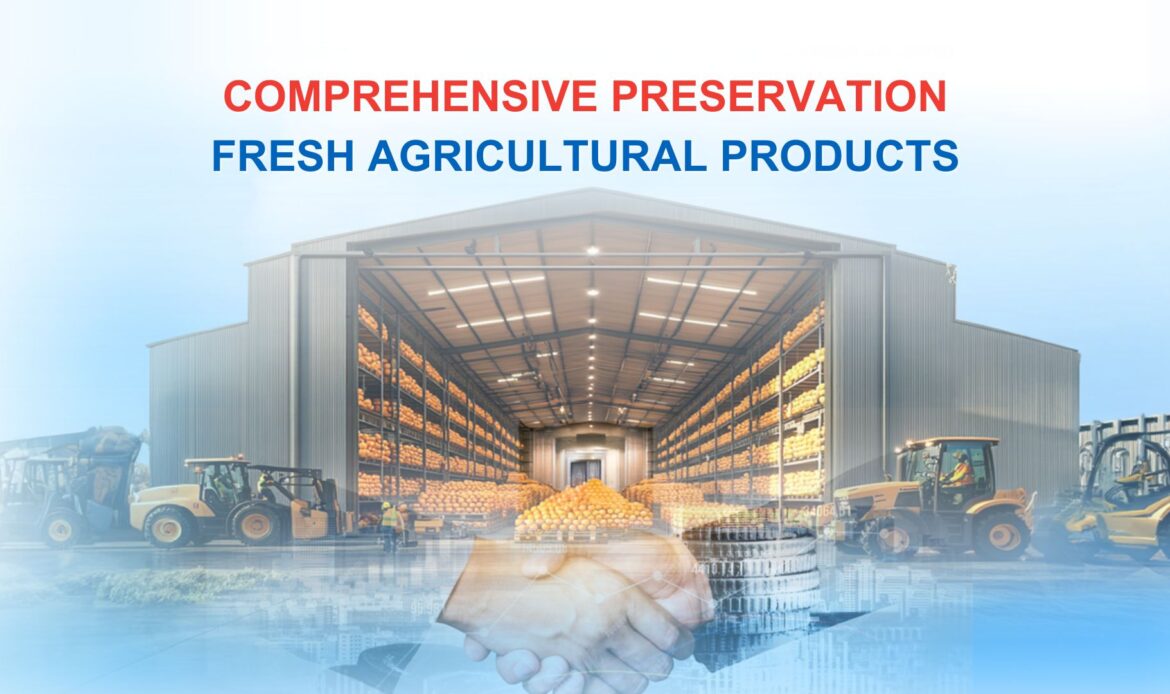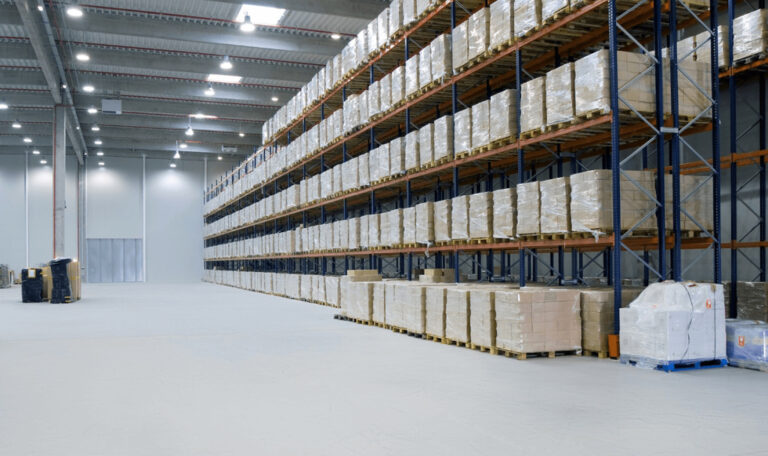Ensuring product quality with smart agricultural warehousing

Agricultural warehousing is an optimal solution for storing fruits, vegetables, and other agricultural products after harvest. With modern technology and optimal storage conditions, agricultural warehousing services help minimize damage, maintain product quality, and assist businesses in meeting international storage standards, thereby optimizing operational costs and reducing transportation time.
The role of agricultural warehousing in product preservation
Agricultural warehousing plays a crucial role in maintaining the quality and value of fruits and vegetables post-harvest. With specialized storage conditions such as temperature, humidity, and light control, agricultural warehouses help reduce the risk of spoilage, pests, and deterioration.
Additionally, agricultural warehousing optimizes the supply chain by providing intermediate storage, allowing businesses to be more flexible in distribution and export activities. Modern agricultural warehouses also integrate smart management technologies that enable real-time tracking of shipments, ensuring timely deliveries and building trust with partners and customers.

Challenges in storing and preserving agricultural products
Preserving agricultural products faces many challenges due to the sensitive nature of the products and environmental factors. Below are some of the difficulties businesses often encounter today:
Environmental conditions
Fresh agricultural products such as fruits and vegetables are highly sensitive to temperature, humidity, and light. If not stored under appropriate conditions, agricultural products are prone to mold, dehydration, or fermentation, leading to a reduction in quality and economic value.
Infrastructure limitations
Many large agricultural production areas in Vietnam still lack standardized storage facilities, particularly cold storage. As a result, products are stored in unsuitable conditions, causing a decrease in quality. Establishing and maintaining compliant agricultural storage systems requires significant investment, which can be challenging for small businesses to access professional storage models.
Ineffective inventory management
Due to the perishable nature and short shelf life of agricultural products, inventory management becomes critically important. When warehouses are poorly organized or lack tight monitoring systems, stock levels may exceed consumption capacity, leading to waste and loss of product value.
Furthermore, the absence of technologies to track and control inventory can exacerbate losses. Errors in demand forecasting, sudden changes in harvest cycles, or transportation delays can cause imbalances in inventory management.
Benefits of professional agricultural warehousing services
Modern agricultural warehousing services offer numerous benefits to businesses in terms of product preservation, storage, and transportation support. An efficient agricultural warehouse will significantly reduce risks related to goods, preservation, stock management…
Minimizing damage and loss
With specialized warehouse systems, agricultural products are better protected from environmental factors such as temperature, humidity, and pests. Tight control over these factors helps minimize losses and ensures quality throughout the storage process, thereby increasing economic value when exported.
Optimizing costs and time
Professional agricultural warehousing applies advanced technologies such as Warehouse Management Systems (WMS), temperature and humidity sensors, and IoT (Internet of Things) technologies to monitor and track product conditions. These solutions help reduce losses while optimizing storage processes. As a result, businesses can save costs and shorten transportation time.
Enhancing market demand response
Modern agricultural preservation solutions that meet international standards help maintain the freshness, flavor, and nutritional value of agricultural products during storage. This not only ensures high-quality products reach consumers but also helps businesses comply with strict food safety regulations in international markets, particularly demanding markets such as Europe, Japan, or the U.S.
Essential standards for agricultural warehouses
To ensure the quality of agricultural products during storage, warehouse systems must meet important standards regarding infrastructure, technology, and operational processes.
Temperature and humidity conditions
- Temperature: maintain stable temperatures according to the needs of each type of agricultural product. For example, cold storage for fruits and vegetables should maintain temperatures between 0°C and 5°C.
- Humidity: Must be controlled according to the characteristics of each agricultural product to prevent mold growth or dehydration.
Ventilation and airflow systems
Agricultural warehouses must have good ventilation systems to ensure air circulation and prevent CO2 buildup. This helps protect the products in the best possible conditions, preventing spoilage and loss of freshness.
Ensuring hygiene and safety
- Warehouse hygiene: regular cleaning is required to prevent the intrusion of bacteria, pests, or mold. This must be thoroughly done across all areas, from warehouse floors and shelving units to refrigeration equipment and ventilation systems.
- Protecting goods: implement protective measures to safeguard agricultural products from external threats such as pests, rodents, or environmental factors.
Monitoring and tracking technology
Warehouses should adopt advanced technologies, such as IoT sensors, to monitor and adjust environmental factors such as temperature, humidity, and product conditions in real-time. This provides accurate data, allowing businesses to promptly detect any abnormal changes in goods and intervene immediately.

Compliance with legal regulations
Agricultural warehousing service providers must strictly adhere to food safety, plant quarantine, and environmental protection regulations set by relevant authorities. This ensures product quality and storage processes meet the requirements of both domestic and international markets.
With the increasing demand for high-quality and efficient storage and transportation of agricultural products, VELA leads the way in offering professional and modern agricultural warehousing solutions, helping businesses optimize their supply chains and comprehensively protect their products.
- Modern warehousing network: Smart warehouses designed to meet international standards, ensuring product safety and quality throughout storage.
- Advanced preservation technologies: Utilizing modern preservation technologies to control temperature, humidity, and environmental factors, ensuring the best product quality.
- Professional and dedicated service: Experienced and dedicated professionals are always ready to support customers in all stages of storage and transportation.
- Real-time digital monitoring platform: Businesses can monitor warehouse conditions and transportation status in real-time, ensuring transparency and efficiency in management.
Professional agricultural warehousing services help effectively preserve agricultural products, minimize damage, and optimize the supply chain. With advanced technology and stringent standards, agricultural warehouses enable businesses to maintain product quality, reduce costs, and shorten transportation times.
